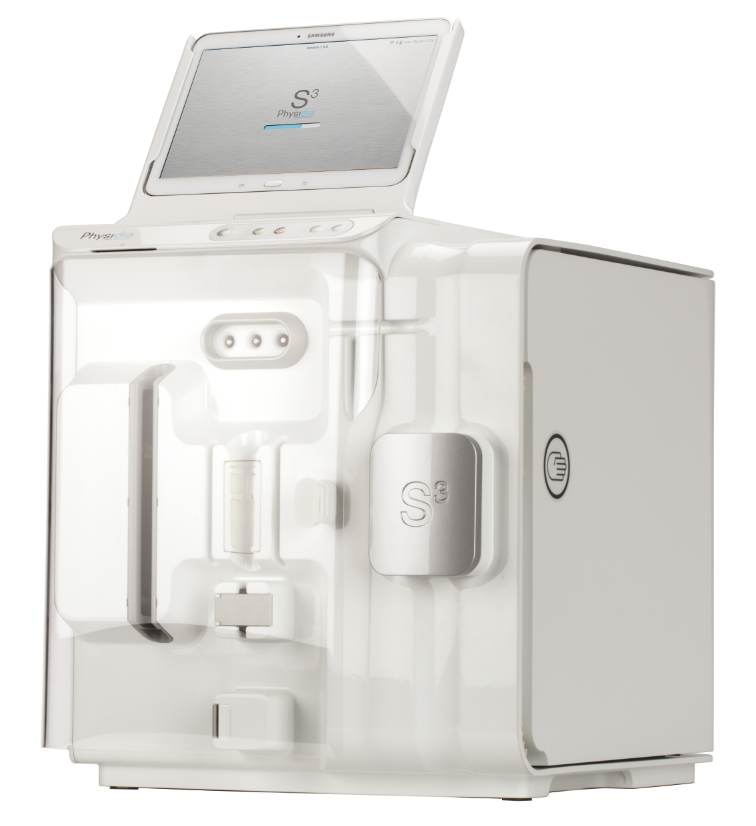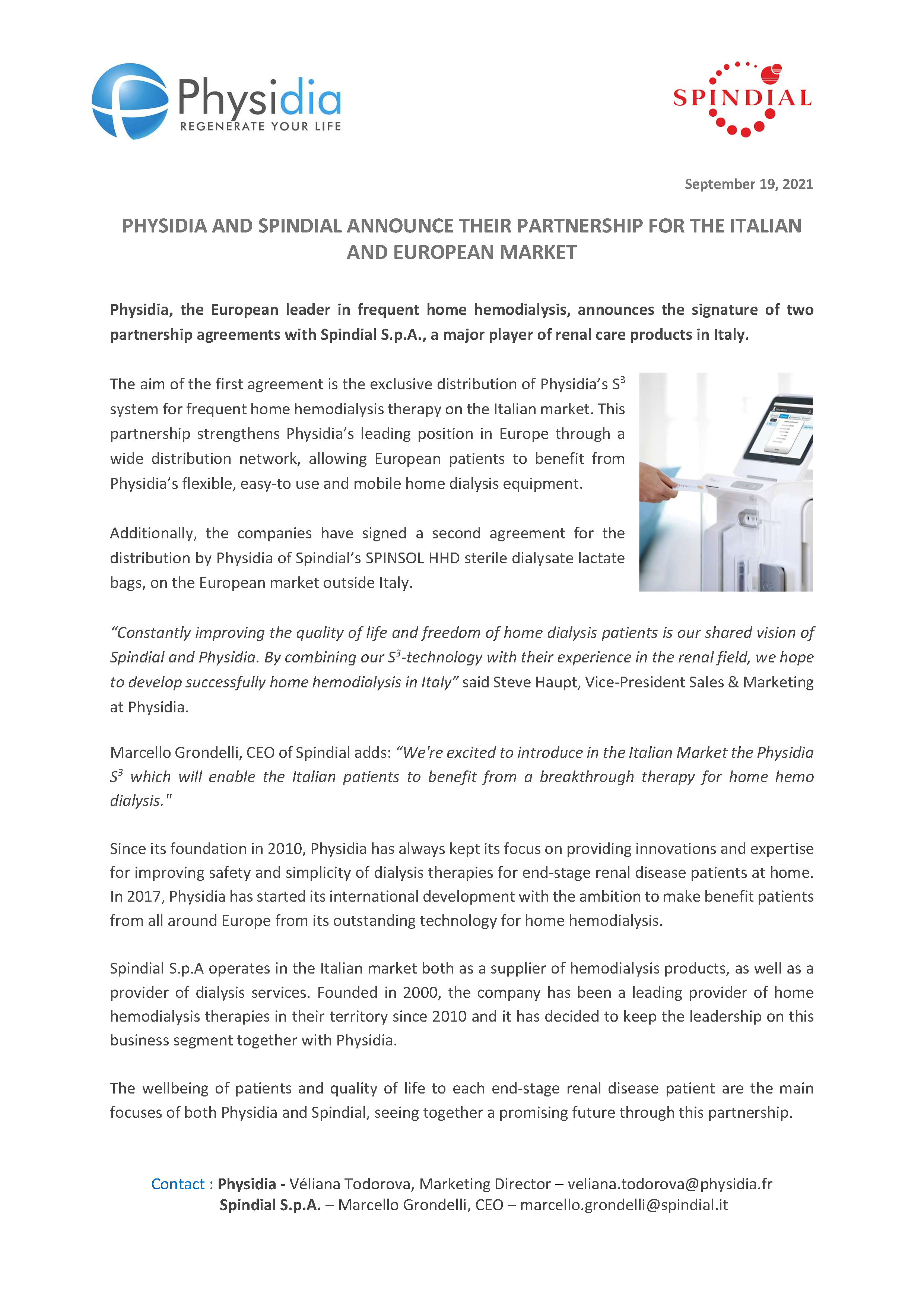A new Partnership
Physidia, the European leader in frequent home hemodialysis, announces the signature of two partnership agreements with Spindial S.p.A., a major player of renal care products in Italy.
The aim of the first agreement is the exclusive distribution of Physidia’s S3 system for frequent home hemodialysis therapy on the Italian market. This partnership strengthens Physidia’s leading position in Europe through a wide distribution network, allowing European patients to benefit from Physidia’s flexible, easy-to use and mobile home dialysis equipment.
Additionally, the companies have signed a second agreement for the distribution by Physidia of Spindial’s SPINSOL HHD sterile dialysate lactate bags, on the European market outside Italy.
“Constantly improving the quality of life and freedom of home dialysis patients is our shared vision of Spindial and Physidia. By combining our S3-technology with their experience in the renal field, we hope to develop successfully home hemodialysis in Italy” said Steve Haupt, Vice-President Sales & Marketing at Physidia.
Marcello Grondelli, CEO of Spindial adds: “We’re excited to introduce in the Italian Market the Physidia S3 which will enable the Italian patients to benefit from a breakthrough therapy for home hemo dialysis.”
Since its foundation in 2010, Physidia has always kept its focus on providing innovations and expertise for improving safety and simplicity of dialysis therapies for end-stage renal disease patients at home. In 2017, Physidia has started its international development with the ambition to make benefit patients from all around Europe from its outstanding technology for home hemodialysis.
Spindial S.p.A operates in the Italian market both as a supplier of hemodialysis products, as well as a provider of dialysis services. Founded in 2000, the company has been a leading provider of home hemodialysis therapies in their territory since 2010 and it has decided to keep the leadership on this business segment together with Physidia.
The wellbeing of patients and quality of life to each end-stage renal disease patient are the main focuses of both Physidia and Spindial, seeing together a promising future through this partnership.


About Physidia
Created in Angers (France) in 2011, Physidia developed and commercializes S³, the first system designed specifically for patients who need daily hemodialysis whilst ensuring their safety and comfort. This innovation is based on several technological breaking points, offering a robust, portable and connected device, whilst ensuring a treatment performed in total autonomy. The short treatment, which lasts in average 2 hours on a daily basis, can be performed at home in full autonomy without compromising the quality of the renal dialysis nor its safety. The system fully favors the patients’ social and professional reintegration, an approach which is impossible to consider for patients who must go to dialysis centers.
The company registered three patents for its hemodialysis system S³. The device and a part of the consumables are produced in France. Physidia is operating directly in France and The United Kingdom and through distributor partners in the rest of Europe. Since its origin, the principal ethos of the company has been innovation with exceptional service by providing comfort, freedom and security to every patient. https://www.physidia.com/
Renal failure and hemodialysis
End-stage renal disease (ESRD) is a severe, chronic disease impacting thousands of people in France. The conventional hemodialysis treatment (artificial kidney) implies three weekly 4-hour sessions at a healthcare facility, to which should be added waiting, recovery and transportation times.
Today representing 43,000 patients, the number of people who are given dialysis increases by 3% every year and costs around € 4bn a year to local governments. Physidia’s solution allows them to make significant economies, by reducing visits and/or transportation to healthcare centers for example.
